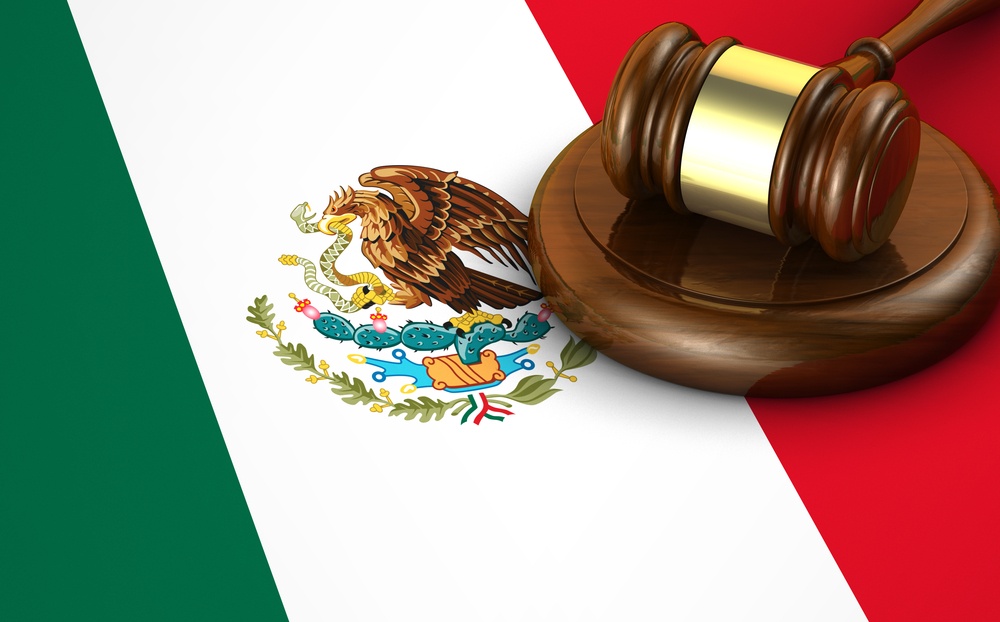While German manufacturers have long known that Mexico is an ideal base of operations— Germany, after all, being Mexico’s principal trading partner within the European Union—German manufacturers may find new reasons to expand their distribution from this North America base.
ProMexico reports that German investments in Mexico exceeded $13 billion USD from 2003 to 2012, primarily (81%) in manufacturing. In the third quarter of 2017 alone, Germany invested more than $350 million in Mexico. And there’s every reason to expect those numbers to grow. German companies currently manufacturing in Mexico continue to plan expansions, committing to a long-view term of the incredible opportunities afforded from a Mexico manufacturing base.
Consider the following four reasons to make your investment in Mexico.
1. Access to the U.S. market
Location is undoubtedly a prime factor in many decisions to open manufacturing operations in Mexico as it provides easy entry into the U.S. market. More global manufacturers are making the most of that benefit but perhaps nowhere is this truer than in the automotive manufacturing sector.
The United States is the largest importer of vehicles worldwide, accounting for 23.1% of total car imports in 2018 amounting to USD $178.5 billion in sales. Manufacturers seeking to expand access to the U.S. market see Mexico as an ideal location from which to reach that hungry market. Vehicle exports from Mexico to the U.S. have grown by 93% since 2011 according to data from the vehicle manufacturers association AIMA and released by Mexico’s National Institute of Statistics and Geography (INEGI). Every year in that period has seen increases, sometimes dramatic, in vehicle exports.
While negotiations around the U.S.-Mexico-Canada Agreement lends some element of uncertainty to trade today, many German companies recognize the importance of taking a long-term view to their investments. After all, Mexico still offers easy accessibility to the rest of the world due to ports on both the Atlantic and Pacific Oceans. And automotive manufacturers continue to reinforce their commitment to their Mexican operations. As recently as November 2018, BMW had announced speculation to add the BMW 2 Series Coupe to the assembly line at its San Luis Potosi plant, which opened earlier in 2018 to produce the new 3 Series.
Consider, in 2005 there were six large vehicle manufactures exporting cars from Mexico. Today there are 11.
2. Strengthening supply chain
Strong representation from automakers is also strengthening the Mexico-based supply chain. After all, this influx of automotive manufacturers into Mexico has only added to the engineering knowhow available. Now more companies are seeking to shorten the distance in supplying these leading manufacturers with the components they need—all produced by skilled labor at a reasonable cost.
For example, in June 2018 the Lippstadt, Germany-based automotive electronics and lightning components supplier HELLA opened its eighth manufacturing facility in Mexico. The company invested USD $12 million in the Guanajuato-based facility, which produces body control modules, driver assistance systems, and lightning components. With the new plant, HELLA has reportedly invested more than USD $150 million in Guanajuato.
Then in November 2018 German Tier 1 automotive supplier Continental AG, based in Hanover, Germany, unveiled plans to build a factory in in Aguascalientes. The USD $60 million investment will support manufacture of electronic control units, door control units, lighting boards and smart antenna modules. Construction on the 258,000-square-foot facility began early this year and is expected to be complete in 2020.
More advanced manufacturing solutions—and a 19% increase in sales in 2017—also led Mülheim an der Ruhr-based Turck to nearly double its Coahuila manufacturing facility in March 2018. The industrial automation solutions manufacturer develops components that are used in the automotive manufacturing process, among other manufacturing sectors.
As more component and parts suppliers expand into Mexico to cater to end-use manufacturers, the entire network benefits from drops in transportation costs as well as shared investments in research and training.
3. Strengthened EU-Mexico FTA
Of course, Mexico also offers public policies and incentives that encourage growth across the entire manufacturing sector. The country has an extensive network of free trade agreements with 45 countries. In 2018, Mexico and the European Union signed an updated trade agreement, strengthening its relationship and further opening the Mexican market to EU investors.
This update has had a particularly strong impact on the manufacture of medical devices. The revised agreement aims to simplify trade in remanufactured machinery, which is intended to streamline trade in medical devices. This is significant as Mexico grows as a hub for medical device manufacturing. Mexico exported more than USD $9 billion in medical equipment and supplies in 2018 alone, and INEGI predicts that number will reach $15 billion by 2020.
4. Skilled labor
Germany has a longstanding reputation of providing excellence in manufacturing. Mexican managers and frontline workers have been proving that they can apply that engineering to excellence in manufacturing. After all, Mexico has produced German-designed cars since the 1954 introduction of the Volkswagen Sedán.
Ultimately, the vehicles contain the same parts and are built to the engineering standards whether they’re produced in Germany or Mexico. When workers meet the exacting quality control standards laid out by the corporate headquarters—as Mexican frontline workers have consistently proven—then manufacturers find one more enticement to expand into Mexico.
Luxury vehicle manufacturers Audi and BMW have seen this evidence in action, as both have committed to manufacturing in Mexico.
AUDI AG became the first premium automobile manufacturer to open product facilities in Mexico, back in 2016. And when they opened, they went big. The facility was launched as one of the most modern factories on the American continent. But in addition to rolling out 150,000 Audi Q5 vehicles annually, the company also rolled out a major training initiative. The facility opened with tailored training courses at a training center for more than 3,300 local employees, in addition to on-site advanced training in Germany for more than 750 Mexican employees. That training has been supported with mentorships, apprenticeships and scholarship support.
That’s the kind of training that only expands the talents of the available skilled labor pool.
Prepare to make the move
Mexico’s reputation for delivering complex products at a high quality and cost-effective rate may seem to help lessen the distance between corporate headquarters in Germany and a new manufacturing operation in Mexico. Of course, any foreign investment will come with some hurdles. But when addressed with a trusted partner, the benefits of expanding will overwhelmingly outweigh any challenges.
Subscribe
Sign up and stay informed with tips, updates, and best practices for manufacturing in Mexico.





